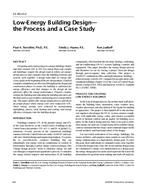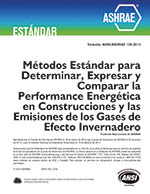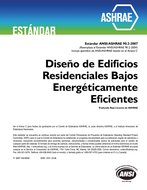Description
Designing and constructing low-energy buildings (buildings that consume 50% to 70% less energy than code-compliant buildings) require the design team to follow an energy-design process that considers how the building envelope and systems work together. A design team must set energy efficiency goals at the beginning of the pre-design phase. Detailed computer simulations are then used throughout the design and construction phases to ensure the building is optimized for energy efficiency and that changes to the design do not adversely affect the energy performance. Properly commissioning the building and educating the building operators are the final steps to successfully constructing a low-energy building. This paper defines this energy-design process and shows an actual project where energy costs were reduced by 63%. These energy savings were achieved by incorporating daylighting, passive solar heating and cooling, and energy efficiency strategies into the building design.
Units: Dual
Citation: Symposium, ASHRAE Transactions, vol. 105, pt. 2, Seattle 1999
Product Details
- Published:
- 1999
- Number of Pages:
- 9
- File Size:
- 1 file , 1.4 MB
- Product Code(s):
- D-7442




